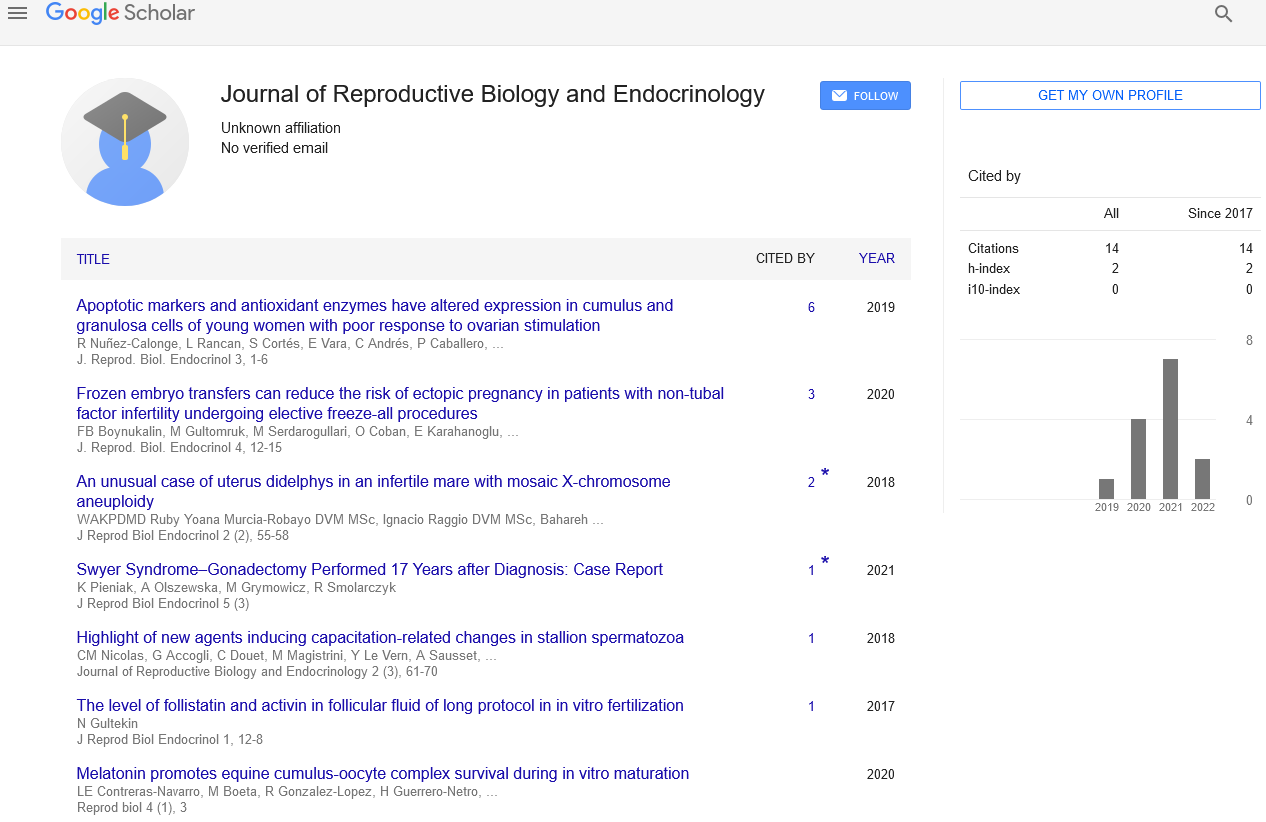Zika virus infection and reproductive endocrinology
Received: 20-Aug-2017 Accepted Date: Aug 21, 2017; Published: 29-Aug-2017
Citation: Wiwanitkit W. Zika virus infection and reproductive endocrinology. J Reprod Biol Endocrinol. 2017;1(1):11.
This open-access article is distributed under the terms of the Creative Commons Attribution Non-Commercial License (CC BY-NC) (http://creativecommons.org/licenses/by-nc/4.0/), which permits reuse, distribution and reproduction of the article, provided that the original work is properly cited and the reuse is restricted to noncommercial purposes. For commercial reuse, contact reprints@pulsus.com
There are many interesting new emerging medical disorders. Of several new problems, the Zika virus infection is an emerging arbovirus infection that is the present global problem affected many countries around the world. It can be seen in several tropical countries and already imported to several non-tropical countries. The disease is an important problem globally. The disease is an acute febrile illness that might induced neurological problem as well as causes the congenital abnormality in infant born to an infected mother [1]. The infection can be transmitted via mosquito vector as well as sexual contact. The multiple modes of transmission makes it becomes a great concern on global public health. The present situation of the outbreak is still continuous and there is still no vaccine or drug against this problematic mosquito borne infection. The only symptomatic management is available for the cases infected with Zika virus. As mentioned, the disease manifests like an acute illness that is difficult to differentiate from other diseases. The clinical problem might be mild or asymptomatic [1]. The pathophysiology of the disease might be related to the virus directly or due to the immunoreactive process. At present, the clinical problem and the pathophysiology of the infection is not completely known. For productive endocrinology, there are few reports on the Zika virus infection. The important question is whether the Zika virus infection can cause any problem in reproductive endocrinology system.
According to the accumulated evidence, there is still no report on this topic in human cases. Since the disease has just been emerged for a few years and there is no long term clinical follow-up, the exact effect of the infection on reproductive endocrinology is largely unknown. Whether the pathogenic Zika virus has any effect on the endocrine system is a very interesting issue in endocrinology. Referring to a similar infection, dengue, the important concern might on the fertility problem. In a recent report on “a patient who had dengue fever immediately after embryo transfer in an IVF treatment cycle”, the infection did not alter the fertility in the patient had no abnormal hormomal change and could give birth to normal child [2]. This might imply that there should be no complication of the acute dengue infection as infertility. For the Zika virus infection, there is an interesting observation on animal model [3,4]. The damage of the testes in infected mice is reported [3]. Govero et al. noted that “this was associated with tissue injury that caused diminished testosterone and inhibin B levels and oligospermia [3].” The reduced testosterone level and testicular atrophy in Zika virus infected animal model becomes a big issue in reproductive biology [3,4]. In histopathology study, the satori cell of the testes is mainly affected [5]. Hence, the concern on the possible effect of the Zika virus infection on fertility of infected patient should be raised. The impact on the male reproductive system might exist after getting Zika virus infection. This might be an important reproductive endocrinopathology issue. A long term followup on this issue is recommended.
REFERENCES
- Shirley DT, Nataro JP. Zika virus infection. Pediatr Clin North Am. 2017;64(4):937-51.
- Geber S, Coimbra BB, Geber GP, et al. Birth of a normal child after in vitro fertilization treatment followed by dengue fever. Arch Gynecol Obstet. 2014;290(5):1037-9.
- Govero J, Esakky P, Scheaffer SM, et al. Zika virus infection damages the testes in mice. Nature. 2016;540(7633):438-42.
- Uraki R, Hwang J, Jurado KA, et al. Zika virus causes testicular atrophy. Sci Adv. 2017;3(2):e1602899.
- Sheng ZY, Gao N, Wang ZY, et al. Sertoli cells are susceptible to ZIKV infection in mouse testis. Front Cell Infect Microbiol. 2017;7:272.





